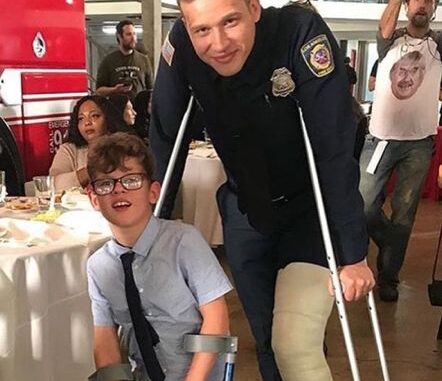
The hit TV franchise “9-1-1” has captured audiences with its high-stakes drama, fast-paced emergency calls, and intense personal storylines. Set in major cities like Los Angeles (in the original series) and Austin (in “9-1-1: Lone Star”), the show’s success lies not just in its gripping emergencies but also in how each location shapes the character of the series. With the potential for another spinoff on the horizon, the question remains: Where should the next “9-1-1” spinoff be set? The location of the next installment could bring fresh dynamics, unique challenges, and diverse storylines. Let’s explore some ideal cities that could provide the perfect backdrop for the franchise’s next adventure.
1. Chicago: The Windy City
Why Chicago?
Chicago, with its blend of bustling urban life and extreme weather conditions, would offer a fascinating new environment for a “9-1-1” spinoff. Known for its bone-chilling winters, scorching summers, and the ever-present Lake Michigan, the city presents diverse emergencies that range from hazardous blizzards to summer heatwaves.
The Chicago Fire Department, one of the largest and oldest fire departments in the United States, has a storied history. The city’s iconic skyline, cultural diversity, and mix of modern and historic architecture would offer a visually rich and culturally engaging backdrop for the show. Additionally, Chicago’s reputation for being a transportation hub with busy airports, highways, and waterways means the series could explore emergency responses involving air traffic control, boat rescues, and high-speed collisions.
Unique Emergencies: Ice storms, multi-car pileups on busy expressways, skyscraper rescues, fires in historical buildings.
2. Miami: The Tropical Heat
Why Miami?
For a change of pace, Miami could offer a sun-soaked, tropical backdrop with a blend of beach life, international influence, and unpredictable weather patterns like hurricanes. Miami’s thriving multicultural population could also introduce a wide range of new characters, adding depth and diversity to the cast. Emergencies might take place in luxury beachfront hotels, vibrant nightlife districts, or even at sea—reflecting the city’s unique connection to the ocean.
Miami’s proximity to the Caribbean and Latin America could introduce international rescue missions, while the coastguard and marine rescue teams would add a new layer of action to the show. Hurricanes, tropical storms, and rising sea levels are real-life concerns for the city, and their potential as plotlines could increase the intensity of the show’s emergency scenarios.
Unique Emergencies: Hurricane evacuations, boat accidents, underwater rescues, alligator attacks in suburban areas.
3. Las Vegas: High Stakes and Desert Drama
Why Las Vegas?
Few cities are as synonymous with high stakes as Las Vegas. Known for its glitzy casinos, world-class entertainment, and 24-hour lifestyle, Sin City would provide a thrilling backdrop for a “9-1-1” spinoff. The show could delve into emergencies that occur on the famous Las Vegas Strip, from fires in mega-casinos to medical emergencies during high-stakes poker tournaments.
Las Vegas is also surrounded by the Mojave Desert, creating opportunities for desert rescues and survival storylines. The series could explore the challenges of dealing with emergencies in remote desert locations, from hiking accidents to extreme heatstroke cases. Plus, with Las Vegas attracting millions of tourists each year, the show could highlight the unique challenges first responders face when dealing with emergencies involving visitors from around the world.
Unique Emergencies: Casino fires, desert rescues, flash floods, rescue operations on the Strip.
4. New Orleans: Culture, History, and Natural Disasters
Why New Orleans?
Few cities in the United States are as culturally rich and historically significant as New Orleans. Known for its jazz music, Creole cuisine, and Mardi Gras celebrations, New Orleans offers a unique setting that could breathe new life into the “9-1-1” franchise. The city is also no stranger to natural disasters—most notably hurricanes and flooding—which would create tension and urgency in the show’s emergency storylines.
New Orleans’ intricate system of levees, its proximity to the Mississippi River, and its history of dealing with hurricanes would all play into the types of crises that the first responders face. The cultural backdrop, from French Quarter festivals to bayou life, would add a distinct flavor to the show. Plus, the deep history of the city and its connection to voodoo and haunted legends could bring some eerie and thrilling narratives to the spinoff.
Unique Emergencies: Flood rescues, Mardi Gras accidents, historic building fires, riverboat emergencies.
5. Seattle: Rainy Days and High-Tech Rescues
Why Seattle?
The Pacific Northwest has its own unique charm, and Seattle could provide a refreshing, rain-soaked backdrop for a new “9-1-1” spinoff. Known for its tech industry, coffee culture, and stunning natural surroundings, Seattle could bring a different flavor to the franchise. The city’s location near mountains, forests, and water would allow for a mix of urban and wilderness rescues.
The constant rainfall and grey skies of Seattle could add a sense of atmospheric tension to the show, while the city’s role as a major tech hub could introduce futuristic rescue technology and emergencies tied to innovation gone wrong. With ferry systems, high-rise buildings, and dense forests nearby, the show could blend high-tech city rescues with rugged outdoor emergencies.
Unique Emergencies: Ferryboat crashes, tech-related accidents, wilderness rescues, mountain-climbing incidents.
Conclusion
Choosing the right city for the next “9-1-1” spinoff is crucial, as the setting often shapes the tone and direction of the show. Each city brings its own set of challenges, culture, and visual style, offering endless possibilities for exciting and diverse emergencies. Whether the next spinoff takes place in the freezing streets of Chicago, the sun-drenched beaches of Miami, the high-stakes casinos of Las Vegas, the historic neighborhoods of New Orleans, or the rain-soaked streets of Seattle, the franchise has the opportunity to expand its reach and captivate new audiences.
Ultimately, the next spinoff should reflect not just the thrill of emergency response, but also the heart and soul of the location itself—creating a show that feels authentic, engaging, and filled with dynamic stories that only a unique city can inspire.